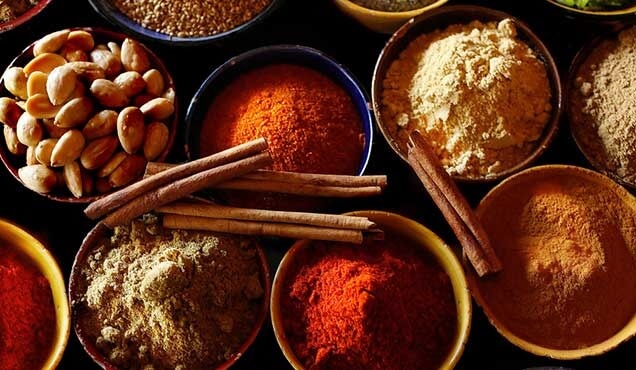Cooking, supply chain and vaccines. Some year-end thoughts
By Hannah Kain, ALOM President and CEO
I was baking traditional Danish Christmas cookies in December. Into the dough went cloves, cardamom, all spice, nutmeg, cinnamon. Many of us associate the spices with Christmas, and no wonder: Not too long ago, these exotic spices were rarities. The supply chain from the distant farms to the European population was cumbersome, going on camels through some of the most challenging climates and environments of the world, moving with different caravans and often ending up on a ship that might or might not make it with dry goods in good shape at the end of the journey. Sugar, another ingredient in the cookies, was so rare that sugar cones were displayed in windows as a symbol of wealth. Indeed, these spices, sugar, and other ingredients were reserved for special occasions.
As my cookies were baking, I reflected on 2020 and how supply chains got even more complex. Trade restrictions and more cumbersome border crossings contributed. Today, spices are a small part of the international trade; yet Covid-related disruption in the food supply chain has impacted populations worldwide. We were all touched by photos of trucks transporting food, yet stuck at border crossings in Africa while drivers await testing and results. Towards year-end, we saw food trucks stuck at the UK borders as part of the trifecta of Brexit, Covid-restrictions, and ecommerce spikes.
Yet, global trade increased in 2020, and – hands-down – supply chains are much more predictable, visible and powerful than ever in the human history. While Brexit created huge concerns, other trade agreements brought improvements, including USMCA. Much overlooked, maybe because the name does not exactly roll off the tongue, the African Continental Free Trade Area (AfCFTA) agreement will start free trading on January 1, 2021 and create the largest free trade area in the world measured by the number of countries participating. The pact connects 1.3 billion people across 55 countries with a combined gross domestic product (GDP) valued at US$3.4 trillion.
Yes, cargo capacity and transportation brought challenges almost all year, but still a long way from the camel caravans.
The main progress was in technology, as more new technology products came online to support supply chains, especially in the visibility area. Let’s hope we can move further both in visibility, but also in other areas, such as trade and border facilitation, predictability and over-all connectivity.
As a consumer, I make it a point to buy from companies that practice strong corporate social responsibility. Yet historically, cookie ingredients came on the back of abusive behavior. Sugar, for instance, came from plantations that relied on slaves. Human and animal abuses used to be a fact of life. 2020 brought further progress yet also steps in the wrong direction. The progress was in increased consumer awareness and ensuing political interest. Yet the ability to control, audit and inspect supply chains was cut back severely. This should leave us with grave concerns.
With the global vaccine distribution, global pharma and cold supply chains are facing the biggest challenge ever. In management school, one learns to discern between important and urgent. Vaccine distribution is both. Supply chain professionals recognize the challenge of the task. Delays literally cost lives. Getting the distribution done requires tremendous effort and agility. 2020 proved that supply chains can be truly agile. I am so proud of ALOM’s supply chain professionals, from the most skilled engineer to the assembly worker, for practicing agility in producing and shipping Covid-19 test kits and meeting demand. We will continue that important work. Yet, like most people, I will also be following the progress of the vaccine supply chain as the world is holding its breath and relying on supply chain pros. Supply chains have never been more important.

